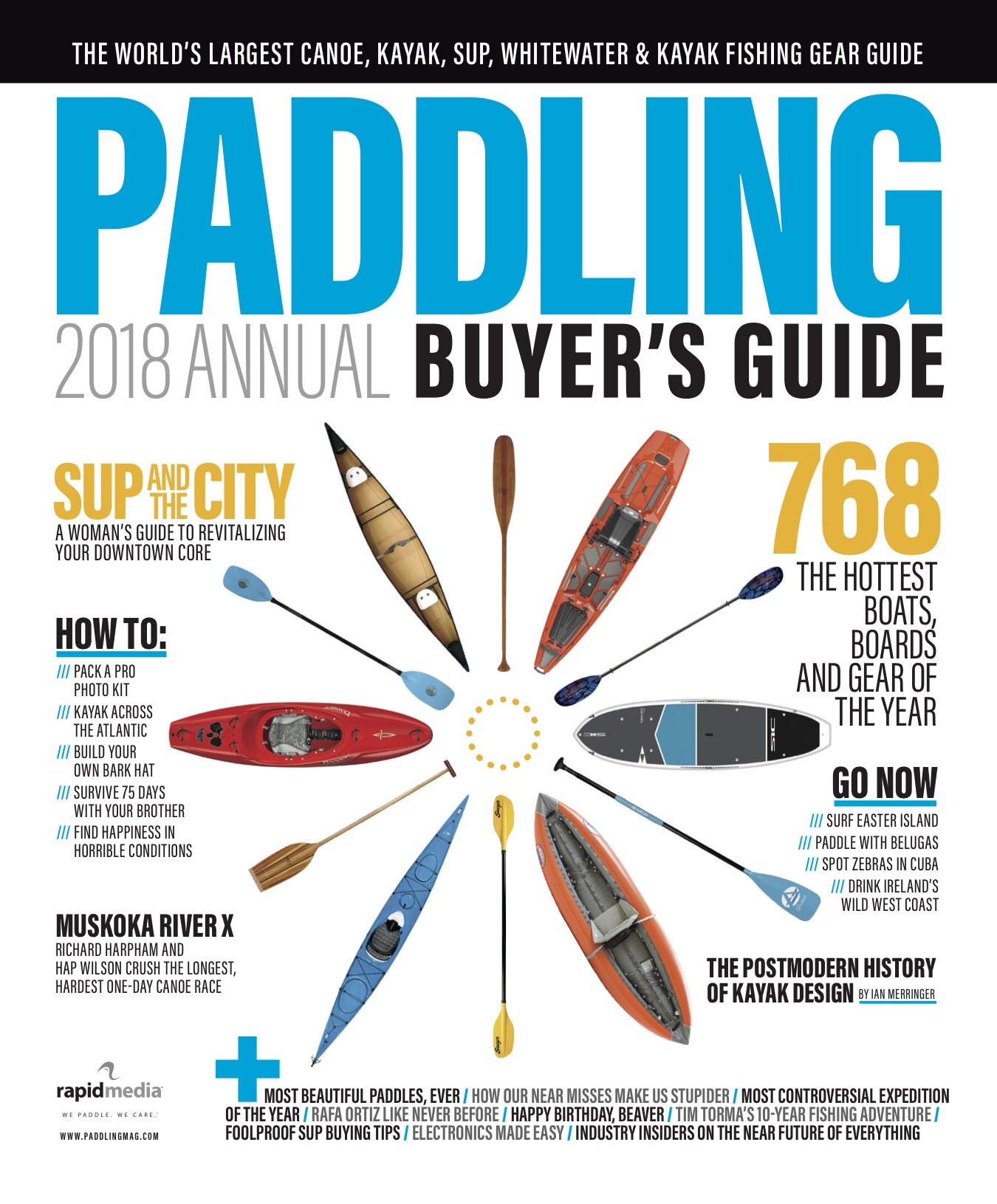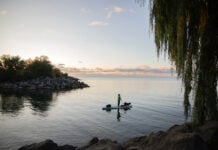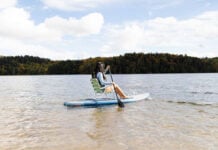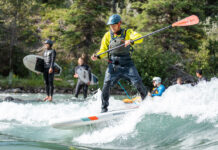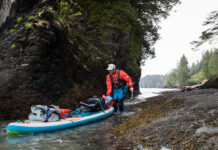Organizers billed it as the most intense standup paddling event in the world. Thirty-two of the world’s best paddlers, 15- foot swell, and $50,000 in prize money.
On October 20, 2017, SUP’s top athletes battled for the largest purse in the sport at the second edition of the extreme Red Bull Heavy Water, part of the 2017 APP World Tour circuit, at Ocean Beach in San Francisco. For the second consecutive year, female athletes were not invited to compete.
Fighting For Rights
World champion Annabel Anderson led the charge in response, starting the #Ipaddleforequality hashtag and making waves in the paddleboarding community as big as the ones the women weren’t invited to ride at Ocean Beach.
“It is not a question of skill or performance, I have personally proven every year a female is capable of delivering a performance equal to those of the top men,” Anderson wrote on Instagram. Anderson’s claims to fame include five consecutive Carolina Cup victories, 2017 ISA Long Distance and Long Technical World Champion, and 2017 Pacific Paddle Games long distance, technical, and overall champion.
The Goal
“My goal is clear: to support equality, transparency and equal opportunity to set a path of success for the future of our sport and its athletes,” she added.
The SUP community rallied in support, with re-posts, multiweek discussion and online op-eds.
Fiona Wylde, Candice Appleby and Jenny Kalmbach were among some of the most distinguished names in pro paddling to voice their support for the #Ipaddleforequality hashtag, calling out not just Heavy Water, but the state of equality in sport.
“It’s just a shame to think if I have a son he can make a career out of just about any sport he chooses, but if I have a daughter she will be limited to making a sport a hobby,” wrote Kalmbach.
“True equality is a long way off in paddling, as well as in numerous other sports.”
“True equality is a long way off in paddling, as well as in numerous other sports,” added pro paddleboarder April Zilg. “Women are not given equal pay or media coverage in the majority of sporting disciplines.”
Gender disparities are no secret in competitive sports, including SUP, where there are currently 598 elite men and 205 elite women competing in the SUP Racer World Rankings events. It’s not uncommon to see an uneven number of male and female entries being granted, an unequal pay-out between genders and significantly less sponsorship and media coverage for women. Women’s sports get just two percent of the airtime on ESPN, and in 2016 only two of the hundred highest paid athletes in the world were women.
Not cool.
The Facts Of Inequality
While slamming the decision to make Heavy Water a male-only event, female athletes were quick to note that SUP racing has seen consistent forward progress in the last decade. For example, in 2013 at the Lost Mills International SUP Race in Germany, men were taking home double the winnings of the women. As of 2016, the men and women competing for the Fastest Paddlers on Earth title are now racing for equivalent earnings.
In the 2008, at the inaugural Battle of the Paddle the men’s champion, Chuck Patterson, walked away with a $10,000 prize, while the women’s champion, Jenny Kalmbach, only received $2,500 for racing on the same board size, course and conditions. When Battle of the Paddle was cancelled in 2015, the Pacific Paddle Games were created and with it came huge gains for women in SUP—prize purse equality, improved media coverage, and in 2016 the women’s surf race was given the headline time slot.
Just one year ago, the ISA World Championships hosted two men for every one woman competing per event. In 2017 the organization equalized the gender split, allowing each nation to field the same number of competitors per discipline for each gender.
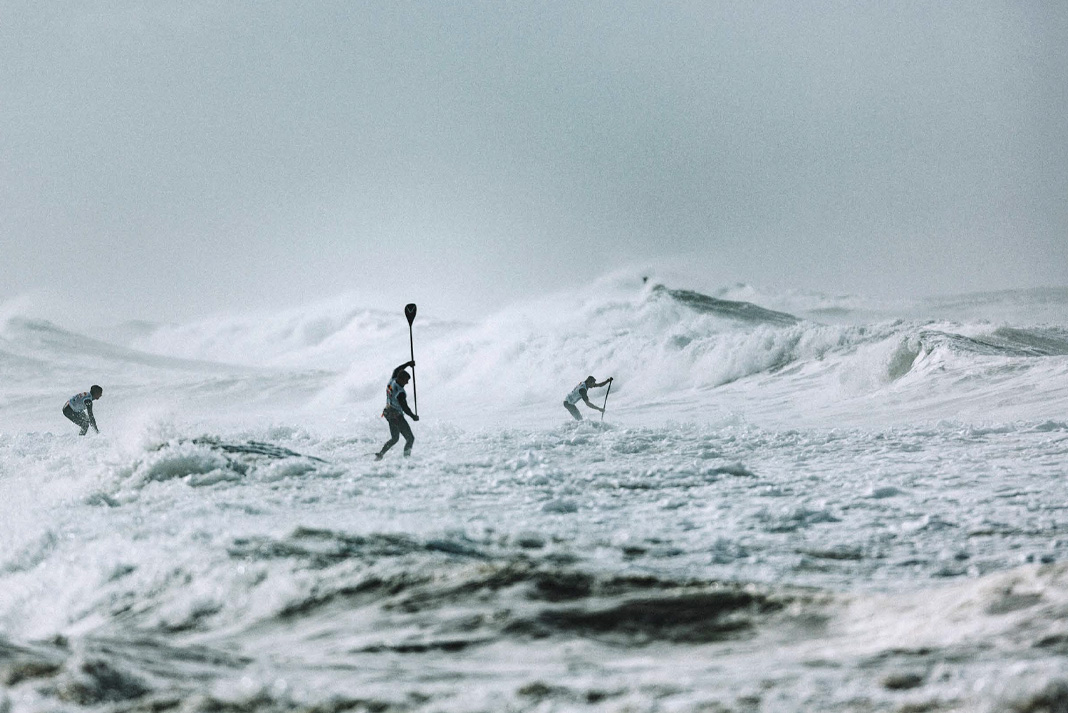
The general trend towards equality in SUP only highlights the regressive decision to keep Heavy Water a male-only field. Neither Red Bull, the title sponsor, nor the Association of Paddlesurf Professionals Pro Tour, the organizer, publicly took responsibility. Our request for comments were politely met with a reiteration of the joint statement released shortly following the event, saying they “hope they will see female participation in the Red Bull Heavy Water in 2018 and subsequent years.”
Yeah, we hope so too.
In the hundreds of #Ipaddleforequality posts on Instagram there was minimal support and contribution from one key group—top male athletes. Equality in sport, at all levels, is the responsibility of governing bodies, race directors, media, industry brands, sponsors, event organizers, athletes and consumers. It was everyone’s responsibility to ask at some point during the lead up to Red Bull Heavy Water, “Hey man, where are the ladies at?”
What true equality in SUP racing looks like remains a bigger discussion—what elite women are united on is that equality at the Red Bull Heavy Water event starts with an invitation to compete.
“At the base of the movement was a call to have women invited to all events—not to have an event excluding women,” says April Zilg. “If a woman wants to, and is capable of entering an event and competing safely, then I feel she has a right. This is equality at a bare minimum. I feel like ‘what now?’ is really up to the industry as a whole.”
Courtney Sinclair is an Ontario-based paddleboarder who raced in the 140-kilometer Muskoka River X last fall, and was awarded the 2017 Ontario Ultra Paddling Champ title. She is a Paddle Canada Advanced Flatwater Stand Up Paddle Instructor.
